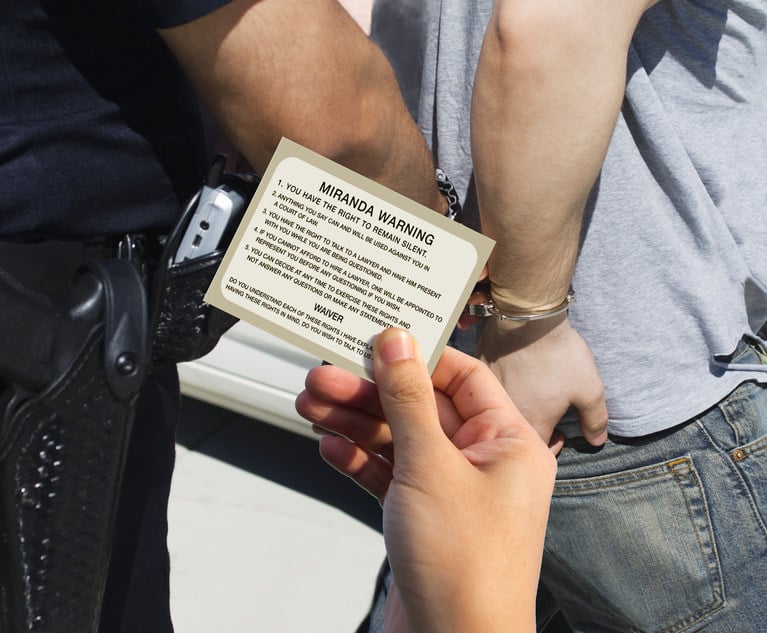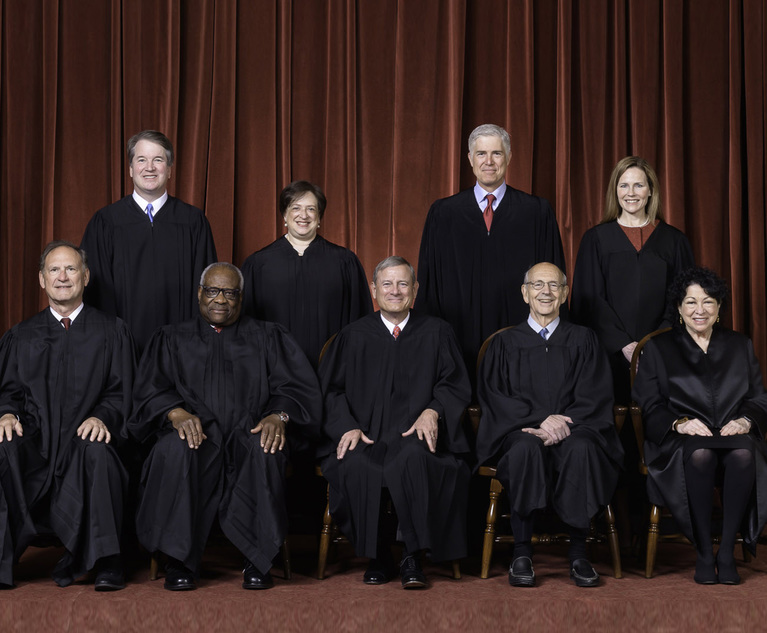Martin A Schwartz

March 06, 2023 | New York Law Journal
Punitive Damages in Section 1983 Excessive Force CasesPolice use of excessive force continues to plague the nation. Combating the problem requires serious changes in police hiring, training and supervisory practices.
By Martin A. Schwartz
11 minute read

December 30, 2022 | New York Law Journal
Second Circuit Tackles Police Canine ForceIn 'McKinney v. City of Middleton', the U.S. Court of Appeals for the Second Circuit held, 2-1, that qualified immunity protected police officers who directed a police canine to "bite and hold" the arrestee for over two minutes. The court found that under the circumstances the police canine force did not violate clearly established Fourth Amendment law.
By Martin A. Schwartz
10 minute read

October 31, 2022 | New York Law Journal
Supreme Court Rejects 'Miranda' §1983 ClaimsIn 'Vega v. Tekoh', 142 S.Ct. 2095 (2022), the Supreme Court held that a §1983 claim for damages does not lie against a law enforcement officer who obtained a statement from a suspect in violation of 'Miranda', even if the statement was introduced against him in the criminal trial.
By Martin A. Schwartz
8 minute read

September 02, 2022 | New York Law Journal
Prosecutorial Immunity DevelopmentsProsecutorial immunity shields a prosecutor's conduct that is intimately related to the judicial phase of the criminal process.
By Martin A. Schwartz
9 minute read

July 01, 2022 | New York Law Journal
The Supreme Court's Malicious Prosecution DecisionIn his Section 1983 Litigation column, Martin Schwartz discusses 'Thompson v. Clark,' where the Supreme Court held that the "favorable termination" element of a §1983 malicious prosecution claim requires the plaintiff to show only that the criminal prosecution did not terminate in conviction.
By Martin A. Schwartz
11 minute read

May 03, 2022 | New York Law Journal
Police Use of Force Against the Mentally Ill: Circuit Court Developments, Part IIIn this edition of his Section 1983 Litigation column, Martin A. Schwartz continues his analysis of circuit decisions evaluating police use of force against persons suffering from mental illness, focusing here on a recent Sixth Circuit decision in which the officer employed both Taser and deadly force.
By Martin A. Schwartz
13 minute read

May 03, 2022 | New York Law Journal
Police Use of Force Against the Mentally Ill: Circuit Court Developments, Part IIn this edition of his Section 1983 Litigation column, Martin A. Schwartz begins his analysis of circuit decisions evaluating police use of force against persons suffering from mental illness, focusing here on decisions from the First, Fourth and Ninth circuits in which officers employed Taser force against an individual suffering from mental illness.
By Martin A. Schwartz
11 minute read

February 28, 2022 | New York Law Journal
How Courts Determine the Constitutionality of Police Use of Deadly ForceIn determining "objective reasonableness" in police use of deadly force cases, Martin Schwartz looks at the Tenth Circuit's recent decision in' Estate of Taylor v. Salt Lake City,' which carefully analyzes the critical issues involved.
By Martin A. Schwartz
11 minute read

January 03, 2022 | New York Law Journal
Second Circuit Upholds City Marshal's Right Not To File False ReportIn his Section 1983 Litigation column, Martin Schwartz discusses the recent Second Circuit decision 'Specht v. City of New York,' involving the protection of free speech rights of public employees from retaliatory actions.
By Martin A. Schwartz
12 minute read

November 01, 2021 | New York Law Journal
When Do Police Fabrication of Evidence Claims Accrue?Sections 1983 fabrication of evidence claims have generated some sticky statute of limitations accrual issues. In this edition of his Section 1983 Litigation column, Martin A. Schwartz explores case law addressing this issue. He writes: "The lesson is clear: Determining the governing accrual date requires close attention to the nature and constitutional basis of the plaintiff's constitutional claim.
By Martin A. Schwartz
9 minute read
Trending Stories
- 1Read the Document: 'Google Must Divest Chrome,' DOJ Says, Proposing Remedies in Search Monopoly Case
- 2Voir Dire Voyeur: I Find Out What Kind of Juror I’d Be
- 3When It Comes to Local Law 97 Compliance, You’ve Gotta Have (Good) Faith
- 4Legal Speak at General Counsel Conference East 2024: Virginia Griffith, Director of Business Development at OutsideGC
- 5Legal Speak at General Counsel Conference East 2024: Bill Tanenbaum, Partner & Chair, AI & Data Law Practice Group at Moses Singer
More from ALM
- Legal Speak at General Counsel Conference East 2024: Virginia Griffith, Director of Business Development at OutsideGC 1 minute read
- Legal Speak at General Counsel Conference East 2024: Bill Tanenbaum, Partner & Chair, AI & Data Law Practice Group at Moses Singer 1 minute read
- Legal Speak at General Counsel Conference East 2024: Julie Cantor, Associate General Counsel at Studs, Inc. 1 minute read



